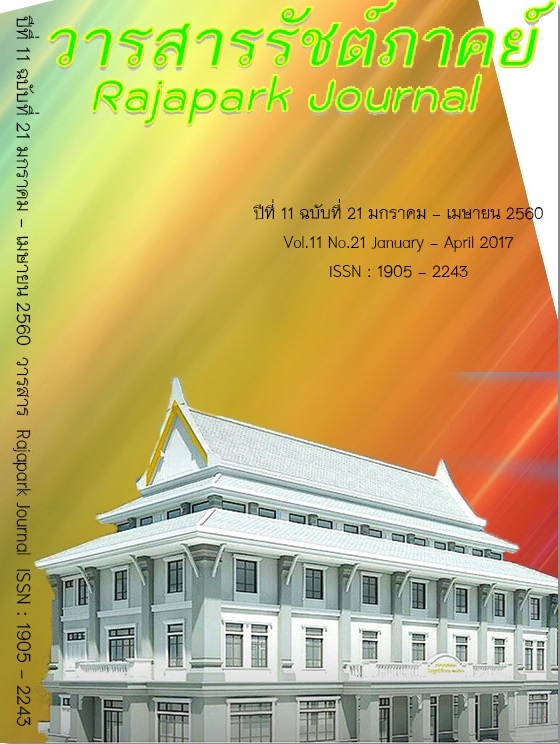Efficient Implementation of 15-year Free Education Scheme in the Schools of the Secondary Educational Service Area Office 40
Main Article Content
Abstract
The present study aimed to (1) examine the effectiveness of the implementation of 15-year free education policy to schools of the secondary education area service office 40, (2) determine factors influencing effectiveness of the implementation of 15-year free education policy to schools of the secondary education area service office 40, and (3) present an effective model of the implementation of 15-year free education policy to schools of the secondary education area service office 40. The populations used to study were school directors, teachers, and parents in the area of the Secondary Education Area Service Office 40. A sample of 722 respondents at derivation .05 was used to study according to Krejcie and Morgan’s sample size table. The study was conducted as a mixed method, quantitative and qualitative research. That is to say, the both have relied on descriptive research; a questionnaire and an in-depth interview were main data collecting tools. The data were analyzed through statistics; mean, standard derivation, enter multiple regression analysis, and analytic induction. The findings of the study indicated that: (1) Effectiveness of the implementation of 15-year free education policy to schools of the Secondary Education Area Service Office 40 showing the levels of the respondents’ opinion on effectiveness of the implementation of 15-year free education policy to schools of the Secondary Education Area Service Office 40 was highest or extremely agree (X = 4.52) (2) Student quality by school directors and teachers showed regression coefficient value at 0.407 and 0.168; predictor coefficient (R2) at 0.313 (3) The effective model of the implementation of 15-year free education policy to schools of the secondary education area service office 40 included the 4 aspects of the factors influencing effectiveness of the implementation of 15-year free education policy to schools of the Secondary Education Area Service Office 40, namely (1) directors, (2) teachers, (3) parents, and (4) students. These were used to stimulate the 2 aspects of the effectiveness of the implementation of 15-year free education policy to schools of the secondary education area service office 40, namely (1) student quality and (2) stakeholders’ satisfaction. Intensively, the model could form influencing the effectiveness of the implementation of 15-year free education policy to schools of the secondary education area service office 40.
Article Details
Views and opinions appearing in the Journal it is the responsibility of the author of the article, and does not constitute the view and responsibility of the editorial team.


